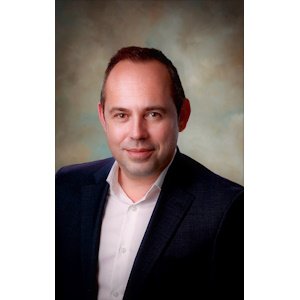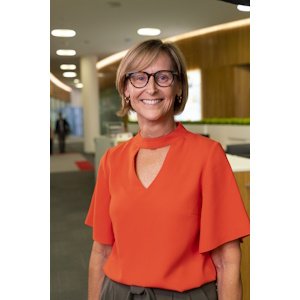OCIMF (Oil Companies International Marine Forum) - Experts & Thought Leaders
Latest OCIMF (Oil Companies International Marine Forum) news & announcements
The Industry Associations of BIMCO, ICS, IMCA, INTERCARGO, INTERTANKO & OCIMF, supported by over forty maritime stakeholders, have released a consolidated and enhanced publication, Best Management Practices (BMP) for Maritime Security (MS). As an interactive online publication, BMP Maritime Security consolidates previously published regional publications into a single, comprehensive publication with actionable insights and advice. It focuses on providing a threat and risk management process and, recognising the dynamic nature of regional security situations, provides signposts to direct users to the most up-to-date security intelligence and risk assessment information. BMP MS is now available to view on the industry website. Range of maritime security threats Seafarers operating ships around the world encounter a range of maritime security threats Seafarers operating ships around the world encounter a range of maritime security threats, which often involve aggressive state and non-state actors. Although these threats vary across regions and in their severity, they can have a traumatic effect on seafarers who face unwarranted physical and mental harm. In some cases, being held as hostages and subjected to violence and ill-treatment for extended periods. BMP Maritime Security To counter the threat, existing BMP guidance has greatly improved the industry’s ability to understand, detect, and deter maritime security threats in recent years, but the advice needs to keep pace with the rapidly evolving threat environment. In BMP Maritime Security, users can navigate easily to different sections and link directly to external sources. Additionally, the publication includes various diagrams that provide valuable learning opportunities. The publication includes a significant section detailing global authorities and, importantly, appropriate contacts and tools for seafarer welfare support. How the threats will develop in 2025 and beyond Additionally, the publication includes various diagrams that provide valuable learning opportunities BIMCO – David Loosley, BIMCO Secretary General & CEO, said: “2024 saw an unprecedented spike in attacks against merchant ships. Ships were attacked with weapons of war in the Black Sea and in the Southern Red Sea more than one hundred times, and four innocent seafarers lost their lives." "Globally, 126 seafarers were held hostage during pirate attacks and armed robberies, and 12 seafarers were kidnapped. BMP MS will reduce risks and save lives. While we cannot control how the threats will develop in 2025 and beyond, we can make sure that we have the best tools available to help protect our seafarers and world trade.” New BMP shipping industry ICS – Guy Platten, Secretary General, said: “Recent years have shown the stark security threats that seafarers and the industry can face in the service of world trade. From the conflict in Ukraine to the Red Sea Crisis, the dangers faced by shipping have increased to a severity not seen in two generations." "This new global BMP continues the shipping industry’s unswerving commitment to protecting seafarers and mitigating threats to the trade on which we all depend.” Enhance maritime security resilience IMCA – Iain Grainger, Chief Executive, said: "The maritime industry faces an ever-evolving landscape of security threats, making it essential for seafarers to have access to the most up-to-date and practical guidance. BMP Maritime Security provides a consolidated resource that helps vessels proactively manage risk, safeguard the welfare of crews, and enhance maritime security resilience worldwide." "People are our key asset, so IMCA is proud to support this initiative, ensuring that best practices continue to evolve alongside the challenges our industry faces." Safety and well-being of seafarers INTERCARGO – Kostas G. GKONIS, PhD, Director/Secretary General, said: “The new consolidated BMP guidance, developed by the maritime industry in coordination with naval forces, addresses escalating global threats to the safety and well-being of seafarers. INTERCARGO proudly supports this vital collaboration which cuts across traditional sector boundaries to deliver clear, actionable security protocols to protect those working at sea." "Through our joint work, we should collectively ensure that these practices reach and empower every vessel, requiring sustained cooperation between frontline crews, whose dedication keeps global trade moving, and security resources and expertise.” Revised BMP and related threat overviews BMP Maritime Security publication replaces previously published issues or supported guidance INTERTANKO – Tim Wilkins, Managing Director, said: “As seafarers navigate conflict and armed threats, it is our duty as shipowner representatives to provide them with the most up-to-date information and guidance to ensure their safety." "The revised BMP and related threat overviews reflect the collaborative efforts of many of our members, drawing on the hard-earned experience of the maritime industry. INTERTANKO considers BMP as being a vital reference for every vessel.” Unprecedented security challenges OCIMF – Karen Davis, Managing Director, said: “In the current heightened threat environment, where seafarers face unprecedented security challenges, the maritime community needs clear advice on how to manage threats, the risks, and the best mitigations to implement." "This publication builds on a successful series of BMPs consolidating the best information available in one publication, BMP Maritime Security.” Best Management Practice (BMP) Maritime Security publication replaces previously published issues or supported guidance.
The Oil Companies International Marine Forum (OCIMF) has successfully transitioned the marine industry to its digitalised version of the Ship Inspection Report Programme (SIRE 2.0). Vessel operators are now only able to request tanker inspections that use the SIRE 2.0 Compiled Vessel Inspection Questionnaire (CVIQ) which is completed on a tablet device by accredited SIRE 2.0 inspectors. SIRE 2.0 Question Library These inspection reports will enable marine assurance teams to conduct more in-depth assessments The move to the digitalised inspection programme means that every tanker inspection will be tailored to the individual vessel and its risk profile. These inspections will require vessel operators and their crew to be prepared to respond to any potential inspection questions from the SIRE 2.0 Question Library. SIRE 2.0 inspection reports contain marine assurance data and provide feedback on all aspects of vessel safety including hardware, processes and human factors. As a result, these inspection reports will enable marine assurance teams to conduct more in-depth assessments of the quality of a vessel and its crew. SIRE 2.0 project team Karen Davis, Managing Director, OCIMF, commented: “SIRE 2.0 is a more comprehensive and robust inspection regime and OCIMF appreciates that switching to it is a significant undertaking for all programme users. This is a necessary and exciting step forward in our collective ability to reduce risk and harm to people and the environment." "I want to express my immense gratitude to the SIRE 2.0 project team, VIP Steering Group and Working Group who have worked tirelessly to bring SIRE 2.0 to life and of course to thank our members, programme users, industry partners, and everyone involved in this project over the past few years for their hard work and dedication in achieving this significant milestone.” VIQ7 inspection Submitted VIQ7 reports will stay open for download for 12 months from their dates of publication Now that SIRE 2.0 has permanently replaced VIQ7 and has become OCIMF’s only available tanker inspection tool, no further VIQ7 inspection requests will be permitted. Submitted VIQ7 reports will remain available for download for 12 months from their dates of publication. Aaron Cooper, Programmes Director, OCIMF, comments: “We are proud of the robust framework that SIRE 2.0 introduces, designed to enhance the quality and consistency of tanker inspections worldwide. This program not only reflects our commitment to advancing the safety of our industry but also our dedication to fostering a culture of continuous improvement and excellence." Vessel inspections Cooper added: “OCIMF recognises that there may be a period of adjustment as personnel at sea and onshore become more routinely engaged with the programme and OCIMF will continue to support all programme users as they undertake their vessel inspections.” “As we move forward, we will incorporate industry feedback and update the programme to address evolving risks to ensure SIRE 2.0 readily adapts as industry evolves.”
KR held the 19th KR European Committee (KREC) meeting in London, UK, on July 1st. The KREC, established in 2004, includes members from major international maritime organisations and key European KR customers as follows: Oil Companies International Marine Forum (OCIMF) International Association of Independent Tanker Owners (INTERTANKO) International Chamber of Shipping (ICS) Baltic and International Maritime Council (BIMCO) International Association of Dry Cargo Shipowners (INTERCARGO) International marine insurance companies like AXA XL European shipowners and ship managers such as Bernard Schulte, Songa Ship Management, J.P. Morgan, and Unity Ship Management KR's technological developments KR raised its technology and R&D achievements told to decarbonisation KR holds the European Committee annually to discuss major industry issues with members and to inform European maritime industry pioneers about KR's technological developments and business activities. At the 19th KR committee meeting, KR introduced its technology and research and development achievements related to decarbonisation, digitalisation as well as the relevant issues in the international maritime industry, in particular EU ETS and FuelEU Maritime regulations being implemented by the EU Authorities to promote decarbonisation in the maritime industry. The meeting also delved into several cutting-edge initiatives, including Norway's ambitious carbon capture project 'The Northern Lights' and the latest publications and programs from OCIMF, with a focus on SIRE 2.0. KR presented its ongoing research and development efforts in decarbonisation, fostering an environment where participants could share experiences and collaboratively explore solutions to the complex challenges facing the international maritime industry. Decarbonisation regulations from the IMO Lee Hyungchul, Chairman & CEO of KR, said, "At a time when the maritime industry is facing strengthened decarbonisation regulations from the IMO, EU, and various governments, this Committee meeting served as a very useful forum to gain experience and insights on technology development and international regulatory trends related to decarbonisation and digitalisation amongst the key figures from the international maritime industry." "KR will thoroughly review and analyse the matters discussed at this Committee to improve KR's services and advance the technology development in the future."






